MercoPress. South Atlantic News Agency
Tag: Argentina
-
Tuesday, June 19th 2018 - 08:35 UTC
Argentina shores the Peso, stock market tumbles, ahead of 'Super Tuesday'

Argentina's peso rose sharply on Monday as a new central bank chief took his first moves to shore up the battered currency, while escalating fears of a damaging trade war between the United States and China drove Latin American stocks down. The Argentine peso jumped after the central bank said it will hike bank's reserve requirements in a move expected to tighten local-currency liquidity after the latest run on the peso.
-
Monday, June 18th 2018 - 08:44 UTC
Falklands' lawmakers ready for a robust presentation before C24
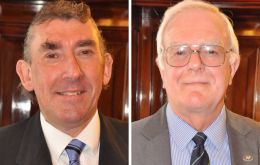
Falkland Islands lawmakers have pledged that their presentations before the United Nations Decolonization Committee or C 24 this year in New York will be as robust as ever, despite the improvement of relations between Argentina and the United Kingdom.
-
Monday, June 18th 2018 - 07:14 UTC
Argentina's new minister suggests a US dollar between 28/29 Pesos as 'comfortable' for industry

Argentina’s newly named Production Minister Dante Sica told a radio station on Sunday that an exchange rate of between 28 and 29 Pesos per dollar is “comfortable” for industry.Sica, an economist, was appointed on Saturday to replace Francisco Cabrera as part of a shake-up that also led to the appointment of a new central bank president and energy minister.
-
Friday, June 15th 2018 - 06:56 UTC
Forex run in Argentina: Macri appoints new Central bank president
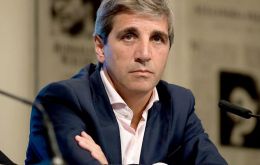
Argentine president Mauricio Macri appointed Finance Minister Luis Caputo as president of the central bank on Thursday, after the outgoing head of the bank resigned and acknowledged having lost credibility.
-
Thursday, June 14th 2018 - 22:14 UTC
IMF's Lagarde welcomes Argentina government’s economic policy plans
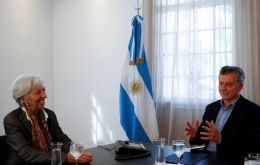
Argentine authorities have asked to use US$7.5 billion of the US$50 billion financing deal signed with the International Monetary Fund to fund their budget, IMF Managing Director Christine Lagarde said in a statement. Argentina’s Finance Ministry said in a separate statement that the funds would be sold on the market through pre-announced daily auctions conducted by the central bank.
-
Thursday, June 14th 2018 - 22:11 UTC
Argentine president Macri was detected a benign pancreatic cyst: “a treatment is not necessary”
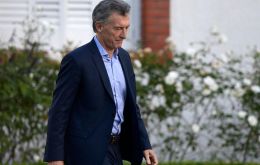
Argentine president Mauricio Macri was detected a benign cyst in the pancreas, according to an official release from the Executive Office. The condition was discovered during a routine medical checkup last 23 May and following clinical studies including a magnetic resonance, the diagnosis was confirmed but a treatment is not necessary, although he will continue under medical monitoring.
-
Thursday, June 14th 2018 - 21:23 UTC
Legal abortion bill in Argentina faces an even steeper up hill in the Senate
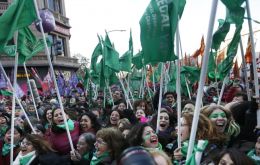
The lower house of Argentina’s Congress on Thursday narrowly passed a Bill to legalise abortion through 14 weeks of pregnancy after a tight vote on a proposal that has divided the South American nation.
-
Thursday, June 14th 2018 - 06:00 UTC
Argentina's unions announce a one-day general strike to protest spending cuts
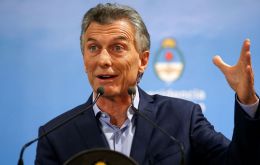
Argentina's leading labor federation announced plans to stage a one-day general strike on June 25 to protest against government economic policies, raising pressure on President Mauricio Macri as he moves to speed up spending cuts to balance the budget.
-
Wednesday, June 13th 2018 - 08:35 UTC
A divided Argentine congress and society vote to decriminalize abortion
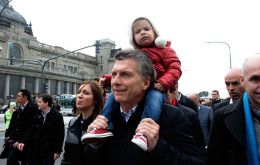
Argentina's Lower House will vote on Wednesday a bill to decriminalize elective abortion without judicial authorization in the first 14 weeks of pregnancy. In Argentina abortion is only allowed when the mother's life is at risk or as a result of rape.
-
Monday, June 11th 2018 - 08:06 UTC
The Day of Malvinas Rights' affirmation remembered in Argentina
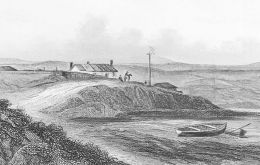
Argentina believes that the new climate in bilateral relations with the United Kingdom, started in 2016, will enable to advance in areas of common interest, particularly in the South Atlantic, and will signify the appropriate framework for the resumption of negotiations on the Malvinas Islands question, according to the terms established by United Nations resolutions.
